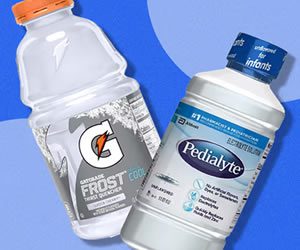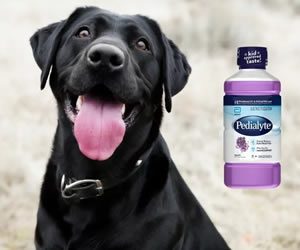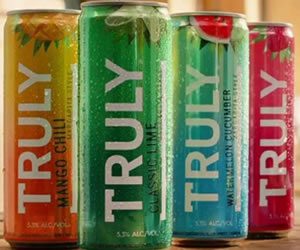Pedialyte vs. Gatorade
Deep Dive into the Science of Thirst: Dehydration and Electrolytes
 Dehydration occurs when the body loses more fluids than it takes in, disrupting the delicate balance of electrolytes in your blood. These electrolytes, including sodium, potassium, and chloride, act as tiny conductors, facilitating nerve impulses, muscle contractions, and proper water balance within cells. When dehydration strikes, the concentration of electrolytes in your blood rises, triggering thirst as a primal survival instinct.
Dehydration occurs when the body loses more fluids than it takes in, disrupting the delicate balance of electrolytes in your blood. These electrolytes, including sodium, potassium, and chloride, act as tiny conductors, facilitating nerve impulses, muscle contractions, and proper water balance within cells. When dehydration strikes, the concentration of electrolytes in your blood rises, triggering thirst as a primal survival instinct.
Ignoring thirst signals and neglecting fluid intake can lead to a cascade of problems, ranging from mild symptoms like fatigue, headache, and dizziness, to more severe complications like kidney failure and even death in extreme cases.
The Heroes Emerge: Tailored Solutions
Both Pedialyte and Gatorade are household names synonymous with hydration, but their specific formulations cater to distinct needs.
Pedialyte: Championing Rapid Rehydration After Illness
Specifically formulated for children and adults recovering from illnesses like diarrhea or vomiting, Pedialyte prioritizes rapid rehydration and electrolyte replenishment. Its lower sugar content compared to Gatorade makes it gentler on sensitive stomachs, especially for individuals experiencing nausea.
Key characteristics of Pedialyte:
- Higher electrolyte concentration: Pedialyte boasts a higher concentration of electrolytes, particularly sodium and potassium, crucial for replenishing lost electrolytes during illness-induced dehydration.
- Lower sugar content: Ideal for individuals with sensitive stomachs or requiring a low-sugar diet due to medical conditions like diabetes.
- Wide availability of kid-friendly flavors: Catering to children's preferences, Pedialyte comes in various flavors, making intake more enjoyable during an illness.
Gatorade: Fueling Peak Performance for Athletes
Designed for athletes and individuals engaged in strenuous activities, Gatorade prioritizes replenishing fluids and electrolytes lost through sweat. Its higher carbohydrate content provides a readily available source of energy for prolonged exercise.
Key characteristics of Gatorade:
- Electrolyte profile tailored for sweat loss: Formulated to replace electrolytes lost through sweat, Gatorade helps maintain muscle function and prevent cramping during exercise.
- Carbohydrate content provides energy: The higher sugar content in Gatorade provides a quick energy source for athletes, particularly during long and intense workouts.
- Variety of formulas: Gatorade offers various formulas with differing levels of carbohydrates and electrolytes to cater to specific exercise needs.
Navigating the Choices: When to Choose Which – A Deeper Look
Understanding Individual Needs is Key:
Choosing between Pedialyte and Gatorade requires a nuanced understanding of individual circumstances. Here's a breakdown of when each beverage is most suitable:
Pedialyte is generally recommended for:
- Rehydrating children and adults experiencing diarrhea, vomiting, or other illnesses causing fluid loss. These conditions cause rapid fluid loss, and Pedialyte's formulation aims to replenish electrolytes and fluids quickly and effectively.
- Milder cases of dehydration: If experiencing mild dehydration due to heat exposure or exercise, Pedialyte can help restore electrolyte balance and promote rehydration.
- Individuals with conditions requiring a low-sugar diet: Due to its lower sugar content, Pedialyte is a preferable choice for individuals with diabetes or other conditions requiring strict sugar control.
Gatorade is generally recommended for:
- Athletes engaged in prolonged and intense exercise sessions (over 60 minutes) leading to significant sweating: Gatorade's electrolyte profile helps replace those lost through sweat, while its carbohydrate content provides readily available energy to maintain performance.
- Individuals seeking to maintain optimal hydration during strenuous physical activity: Engaging in activities like long-distance running, cycling, or high-intensity training can lead to significant fluid loss. Gatorade helps replenish fluids and electrolytes to maintain hydration and prevent fatigue.
Beyond these general recommendations, consider these factors:
- Severity of dehydration: In cases of severe dehydration, especially for children or individuals with underlying health conditions, seeking medical attention is crucial. Pedialyte or Gatorade might not be sufficient, and medical professionals can provide the appropriate rehydration strategy.
- Underlying health conditions: Individuals with specific medical conditions, like kidney disease or heart failure, may have limitations regarding fluid intake or specific electrolyte needs. Consulting a healthcare professional is essential for personalized guidance in such cases.
- Personal preferences: Both Pedialyte and Gatorade offer a variety of flavors. Choose the one that suits your taste preference, as enjoying the taste can encourage consistent hydration.
Remember: This information serves as a general guide, and consulting a healthcare professional is crucial for personalized recommendations, especially if you have any concerns or underlying health conditions.
Beyond the Basics: Additional Considerations
The Hanger Myth: While commonly used for hangovers, there's no scientific evidence supporting the effectiveness of Pedialyte or Gatorade in treating hangovers. Both beverages lack the necessary ingredients to address the complex physiological mechanisms behind hangovers. Consuming excessive alcohol disrupts fluid balance, electrolyte levels, and blood sugar, and neither Pedialyte nor Gatorade are specifically formulated to address these issues.
Sugar-Free Options: Both Pedialyte and Gatorade offer sugar-free versions for individuals seeking a low-calorie option. These sugar-free alternatives retain the essential electrolytes, making them suitable for those who require hydration without the added sugar content. However, remember that even sugar-free versions may contain artificial sweeteners, which can have their own potential drawbacks for certain individuals. Consult a healthcare professional if you have any concerns about artificial sweeteners.
Mindful Consumption: It's important to note that neither Pedialyte nor Gatorade are meant to be primary sources of hydration. Water remains the most essential and recommended beverage for daily hydration needs. While they offer benefits in specific situations, relying solely on these beverages for daily hydration can lead to electrolyte imbalances and other potential health concerns.
Remember: When choosing between Pedialyte and Gatorade, consider the specific scenario and individual needs. Consulting a healthcare professional is crucial before using either drink, especially if experiencing severe dehydration, chronic health conditions, or following specific medical treatment plans.
The Intricate Dance of Electrolytes: Beyond Sodium and Potassium
While sodium and potassium are often the highlighted electrolytes in Pedialyte and Gatorade, their formulations go deeper, encompassing a symphony of essential minerals. Understanding these additional players provides a more nuanced view of each beverage's capabilities.
Pedialyte: Beyond the Basics
In addition to the well-known sodium and potassium, Pedialyte often contains:
- Chloride: Balances fluids in the body and aids in digestion. Chloride helps maintain the proper balance of fluids within and outside your cells. It also plays a role in muscle function, stomach acid production, and the transmission of nerve impulses.
- Zinc: Supports the immune system and aids in the absorption of other electrolytes. Zinc plays a crucial role in immune function, wound healing, and maintaining a healthy sense of taste and smell. It also assists in the absorption of other essential nutrients, like sodium and potassium.
These additional elements contribute to Pedialyte's effectiveness in promoting rehydration, particularly in scenarios where illness disrupts the body's natural balance of electrolytes.
Gatorade: Tailoring the Blend for Optimal Performance
Gatorade, while focusing on sodium and potassium, also incorporates other electrolytes crucial for athletic performance:
- Calcium: Essential for muscle function and bone health. Calcium is critical for strong bones and teeth, and it also plays a vital role in muscle function, nerve transmission, and blood clotting.
- Magnesium: Supports muscle function, energy production, and nerve function. Magnesium plays a crucial role in various bodily functions, including muscle function, energy production, blood sugar control, and nerve transmission.
This broader spectrum of electrolytes helps Gatorade cater to the specific needs of athletes who experience significant electrolyte loss through sweat during intense exercise. By replenishing these essential minerals, Gatorade helps prevent muscle cramps, fatigue, and other potential complications associated with electrolyte imbalance during exercise.
Remember: This information provides a general overview of electrolytes, and the specific content of each beverage can vary depending on the brand and formula.
Sugar: Friend or Foe? Unveiling the Controversy
Sugar, a significant component of Gatorade, often sparks debate concerning its role in hydration. While it provides a readily available energy source during exercise, excessive sugar intake can have drawbacks:
Friend:
- Rapid Energy Source: The carbohydrates (sugars) in Gatorade provide a quick and readily available source of energy for your muscles, especially during prolonged or intense exercise. This can be beneficial for athletes seeking to maintain performance throughout their workouts.
Foe:
- Spike and Crash: The quick rise in blood sugar levels followed by a subsequent drop can lead to fatigue, decreased performance, and even increased cravings for sugary foods.
- Potential for Gastrointestinal Distress: High sugar content can cause stomach upset, nausea, and bloating, especially in individuals with sensitive digestive systems. This can be particularly detrimental during exercise, potentially hindering performance and comfort.
The Controversy:
The debate surrounding sugar in sports drinks like Gatorade lies in balancing the potential benefits of readily available energy with the drawbacks of excessive sugar intake.
Factors to Consider:
- Intensity and duration of exercise: Individuals engaged in short and low-intensity exercise sessions may not require the additional energy boost provided by sugar.
- Individual tolerance: Some individuals are more sensitive to sugar than others and may experience greater gastrointestinal distress from high-sugar beverages.
- Overall diet: Individuals who already consume a high-sugar diet may not require additional sugars from sports drinks and may benefit from sugar-free alternatives.
Remember:
- Moderation is key: If choosing a sugary sports drink like Gatorade, consume it in moderation and only during sustained, high-intensity exercise sessions.
- Water remains the best choice: Water is the most essential and recommended beverage for hydration needs, even during exercise. Supplementing water with sports drinks containing electrolytes should only be done strategically and based on individual needs and activity level.
Sugar-Free Options: A Viable Alternative
The sugar controversy surrounding Gatorade has led to the rise of sugar-free alternatives for both Pedialyte and Gatorade. These sugar-free versions offer a viable alternative for individuals seeking:
- Reduced calorie intake: They cater to individuals seeking to limit their overall calorie intake or those on calorie-restricted diets.
- Management of blood sugar levels: Individuals with diabetes or prediabetes can benefit from sugar-free options, as they help manage blood sugar levels by avoiding the spikes associated with sugary beverages.
- Avoiding gastrointestinal discomfort: Individuals with sensitive digestive systems can opt for sugar-free versions to minimize the risk of stomach upset, nausea, or bloating.
Benefits of Sugar-Free Options:
- Retain essential electrolytes: Despite the absence of sugar, these options retain the essential electrolytes present in the original formulas, ensuring they still address the intended purpose of rehydration and electrolyte replenishment.
- Variety of flavors: Similar to their sugary counterparts, sugar-free Pedialyte and Gatorade come in various flavors, catering to individual preferences and encouraging consistent hydration.
Things to Consider:
- Sweeteners: Some sugar-free options may contain artificial sweeteners, which can have their own potential drawbacks for certain individuals. Consult a healthcare professional if you have any concerns about artificial sweeteners.
- Taste preference: Depending on your taste preference, you may find the sugar-free options less appealing compared to their sugary counterparts. Experiment with different flavors to find one you enjoy.
Remember:
- Sugar-free options are not a magic bullet: While they offer benefits, they should not be solely relied upon for hydration. Water remains the most essential and recommended beverage for daily hydration needs.
- Consult a healthcare professional: If you have any underlying health conditions or concerns, consult a healthcare professional before choosing a sugar-free option to ensure it aligns with your specific needs and health goals.
Practical Considerations for Choosing Your Hydration Hero
While understanding the science behind Pedialyte and Gatorade is crucial, practical considerations play a vital role in everyday choices. This section delves into factors beyond the technical aspects, helping you select the most suitable beverage based on your specific needs and preferences.
1. Taste Preferences: Catering to Your Palate
Both Pedialyte and Gatorade come in a variety of flavors, catering to diverse preferences:
- Pedialyte: Offers a broader range of fruit flavors, often with a milder sweetness, making them more palatable for children or individuals with sensitive taste buds.
- Gatorade: Known for its association with sports, features a bolder and wider range of flavors, including citrus, berry, and tropical blends, appealing to individuals seeking a more pronounced taste experience.
Ultimately, the choice comes down to personal preference. Experiment with different flavors to find one you enjoy, as this can encourage consistent hydration throughout the day.
2. Portability: Convenience on the Go
Portability becomes a key factor depending on when and where you need hydration. Both brands offer various packaging options, ensuring your chosen beverage is readily available:
- Bottles: The most common option, bottles provide convenient on-the-go hydration and are available in various sizes to suit your needs.
- Packets: Ideal for travel or situations where space is limited, individual packets allow for easy mixing with water, creating a single serving of your chosen beverage.
- Powdered forms: Offer the most space-efficient option, allowing you to customize the concentration of the drink by mixing the powder with varying amounts of water.
Consider your lifestyle and choose the packaging that best suits your needs. Opt for bottles for everyday use, packets for travel, or powdered forms for space-saving storage at home.
3. Potential Side Effects: Understanding Individual Responses
While both Pedialyte and Gatorade are generally safe for most individuals, it's essential to be aware of potential side effects:
- Pedialyte: The lower sugar content may cause mild stomach upset in some individuals. Additionally, excessive consumption can lead to electrolyte imbalance in individuals with healthy electrolyte levels.
- Gatorade: The higher sugar content can cause stomach upset, especially in individuals with sensitive digestive systems. Additionally, excessive sugar intake can contribute to weight gain and dental problems if not consumed in moderation.
Pay attention to your body's response and adjust your intake accordingly. If you experience any discomfort, consult a healthcare professional.
Remember:
- Always consult a healthcare professional before using either beverage if you have any underlying health conditions or concerns.
- Listen to your body: If you experience any discomfort after consuming either beverage, discontinue use and seek medical advice.
- Moderation is key: Avoid excessive consumption of either Pedialyte or Gatorade, as they are not replacements for water in your daily hydration routine.
By considering these practical factors, you can make informed choices when selecting Pedialyte or Gatorade to ensure they effectively address your specific hydration needs without compromising your taste preferences or comfort.
from
https://themieleguide.com/pedialyte-vs-gatorad/
from
https://mieleguide.weebly.com/blog/pedialyte-vs-gatorade-which-is-better-for-hydration
 Hydration is crucial for your dog's health, especially during periods of illness or high temperatures. While water is the best source of hydration, there are situations where your furry friend might need a little extra help. This is where Pedialyte, a popular electrolyte solution designed for humans, comes into play. It's often recommended for dogs experiencing dehydration, but it's essential to use it correctly. This guide will take you through everything you need to know about diluting Pedialyte for dogs, ensuring you can safely hydrate your pet while avoiding any potential risks. From understanding the benefits and appropriate ratios to choosing the right type and dosage, we've got you covered. Let's dive into the world of canine hydration with Pedialyte, ensuring your dog stays healthy and hydrated.
Hydration is crucial for your dog's health, especially during periods of illness or high temperatures. While water is the best source of hydration, there are situations where your furry friend might need a little extra help. This is where Pedialyte, a popular electrolyte solution designed for humans, comes into play. It's often recommended for dogs experiencing dehydration, but it's essential to use it correctly. This guide will take you through everything you need to know about diluting Pedialyte for dogs, ensuring you can safely hydrate your pet while avoiding any potential risks. From understanding the benefits and appropriate ratios to choosing the right type and dosage, we've got you covered. Let's dive into the world of canine hydration with Pedialyte, ensuring your dog stays healthy and hydrated. Hangovers, that universal post-party phenomenon, have plagued revelers for centuries. From greasy breakfasts to hair-of-the-dog cocktails, numerous (often questionable) remedies have been touted throughout history. But in recent years, an unexpected contender has emerged as a popular hangover solution: Pedialyte. Initially designed for children suffering from dehydration and electrolyte imbalance, Pedialyte has unexpectedly found a dedicated following among adults seeking relief from the aftereffects of a night out.
Hangovers, that universal post-party phenomenon, have plagued revelers for centuries. From greasy breakfasts to hair-of-the-dog cocktails, numerous (often questionable) remedies have been touted throughout history. But in recent years, an unexpected contender has emerged as a popular hangover solution: Pedialyte. Initially designed for children suffering from dehydration and electrolyte imbalance, Pedialyte has unexpectedly found a dedicated following among adults seeking relief from the aftereffects of a night out. In the wake of an accident, amidst the chaos and confusion, finding the right legal representation can make all the difference in your recovery journey. Kansas City, with its bustling streets and complex legal landscape, demands a knowledgeable ally to navigate the aftermath effectively. This blog aims to illuminate the path to finding the best Kansas City accident attorneys, ensuring you're well-equipped to tackle the legal challenges ahead. From understanding the importance of local expertise to choosing an attorney that aligns with your needs, we delve into the essentials of making an informed decision. Whether you're grappling with the nuances of accident claims or seeking guidance through the legal process, our comprehensive guide stands as a beacon of clarity and support.
In the wake of an accident, amidst the chaos and confusion, finding the right legal representation can make all the difference in your recovery journey. Kansas City, with its bustling streets and complex legal landscape, demands a knowledgeable ally to navigate the aftermath effectively. This blog aims to illuminate the path to finding the best Kansas City accident attorneys, ensuring you're well-equipped to tackle the legal challenges ahead. From understanding the importance of local expertise to choosing an attorney that aligns with your needs, we delve into the essentials of making an informed decision. Whether you're grappling with the nuances of accident claims or seeking guidance through the legal process, our comprehensive guide stands as a beacon of clarity and support. In recent years, the ready-to-drink (RTD) cocktail market has witnessed an unprecedented boom, with consumers gravitating towards convenience without compromising on taste or quality. Among the vanguard of this movement is Truly, a brand that has become synonymous with flavorful, refreshing, and effortlessly enjoyable alcoholic beverages. The introduction of the Truly Margarita Pack marks a significant milestone for margarita aficionados and casual drinkers alike, offering a tantalizing twist on a classic cocktail that can be enjoyed anywhere, anytime.
In recent years, the ready-to-drink (RTD) cocktail market has witnessed an unprecedented boom, with consumers gravitating towards convenience without compromising on taste or quality. Among the vanguard of this movement is Truly, a brand that has become synonymous with flavorful, refreshing, and effortlessly enjoyable alcoholic beverages. The introduction of the Truly Margarita Pack marks a significant milestone for margarita aficionados and casual drinkers alike, offering a tantalizing twist on a classic cocktail that can be enjoyed anywhere, anytime.